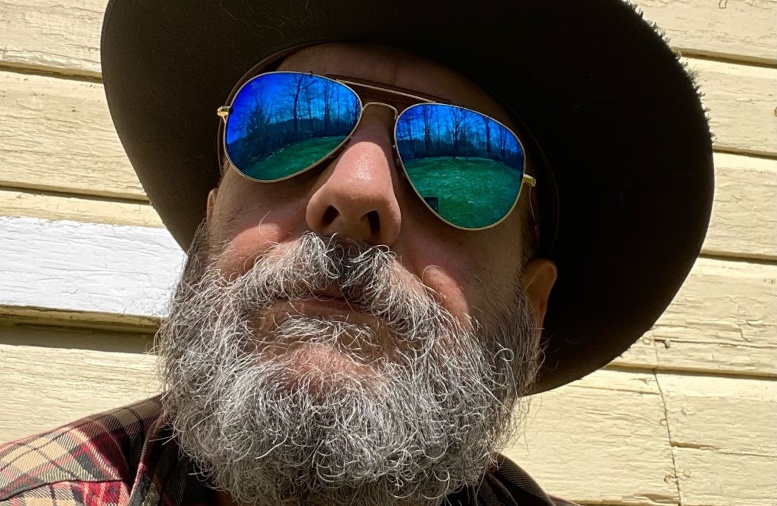INTERVIEW: An avid student and practitioner of innovative approaches to soil and water quality management, Joel Bedard has been involved in agriculture, natural resources, engineering and entrepreneurship for more than 30 years. He is a Certified Soil and Wetland Scientist and has testified before the Vermont state legislature and the state’s U.S. Congressional delegation on sustainability issues.
HempToday: There’s a lot of talk now about hemp’s efficacy in the carbon space – both for soil improvement and various applications. How do you assess the level of interest and progress there? Will the needed investment materialize?
Joel Bedard: This is a really interesting concept to me, as the excitement and interest do not really reflect the understanding and general grasp of the carbon cycle, the international carbon crediting system, existing case studies, or even sequestration vs. capture. At face value, carbon capture and sequestration are vastly different outcomes and the math simply does not support the hype at present.
HT: Are we seeing any real progress in the advancement and adoption of regenerative agriculture practices? Are farmers and the ag industries waking up to the damage conventional farming has done?
JB: I feel that the next generation of agriculture will be tied to applied technology and increased efficiencies. Deploying technology appropriately will allow for finer tuning that lends toward what we describe as regenerative agriculture. At an esoteric level, we use physics to inform the relationships between inputs and outputs and develop best practices that minimize the inputs and maximize the outputs. This is a long-overdue agricultural revolution that is getting a bit of a kick in the pants by international socio-economic upheavals in the fertilizer and production supply lines. As an example of the priority attention in the USA, all current USDA and ag-related trade is informed by “food system management.” The food system is and shall remain the priority focus for agricultural efficiency and innovation. Maintaining this system is prioritized and optimized through what we currently describe as regenerative agriculture.
HT: It seems we’re getting to the point where we will be forced to depend on locally sourced natural resources. Are we ready for that?
JB: As our population centers have decentralized, so too should our supply chains be shortened. Proximity to resources is a white space opportunity for innovation. We cannot justify forklifting a metropolis to the middle of volume production zones (New York City in the middle of Nebraska for example). But we can look at models such as the Netherlands or Ukraine in which agriculture and urban areas are far more proximal. I am fortunate enough to be able to source the majority of my family’s farm products from within a 15-mile radius.
HT: Give us a quick update on what is happening with hemp in Vermont.
JB: Vermont is “no man’s land” for industrial hemp in 2022. The CBD chase and attention has shifted to adult-use recreational cannabis and left only a handful of early adopters still active. Vermont is also not lent to large fields, being such a small, insular State. There are several smaller, regional projects upon which I am consulting, but nothing that wants to exist in the “hype space.” With regards to blockchain for Cannabis – I don’t think that it has the promise that others might. So long as the UN Single Convention has its stamp on Cannabis, international monetary machinations based on Cannabis will be vulnerable.
HT: What interesting hemp projects are on your plate now?
JB: There are a few projects for which I assist with supply chain and market economic models. I do have one large project with a substantial inventory of technical grade fiber and fiber raw materials. I am helping to determine the market value in such a way that farmers are incentivized appropriately and that pricing reflects that. The idea that an end product business aggregates profit margin at the sake of the farming community is anathema to me and I need to know that the agricultural community is supported, and that the cycle of abuse of farms and farmers ends with hemp.
HT: What’s your advice these days to a young person wanting to get into the hemp business?
JB: We joke about such things, but in some ways buying a boat is an equivalent – a hole in the water that you throw your money into. But the real opportunity in hemp is not in cultivation, it is in innovation. I do not consider cannabinoid hemp to be the same as industrial hemp for this discussion. But with raw materials, one could bring just about anything to market, and then it’s simply a matter of traditional entrepreneurship and an understanding of disruptive technology’s role in the marketplace. You are not inventing toilet paper – you are developing an alternative, which requires appropriate R&D, quality assurance and control (QA/QC) and most importantly return on investment. Those are basic concepts. Understanding where the demand already exists matters.
HT: And your advice to investors?
JB: Stop listening to the hype machines and speak to individuals with legacy skill sets. Do not go to a hemp conference and expect to hear a materials engineer presenting technical data that justify the spend. Hemp is a lovely thing, but we have a lot of lovely things at our avail. Invest in farms and farmers, innovators and science.
HT: You’ve mentioned you are designing a Valhalla-style 4-season greenhouse in Vermont. What is that?
JB: That is a pet project. The idea is along the lines of making agriculture more local—low cost, hardened, 4-season greenhouse facilities that can scale to smaller populations or even personal use. It is a technology-rich model that uses natural variables rather than fighting them. I love photovoltaics and geothermal and natural building vernaculars and materials. Call it a vanity project.

